How Secure Is Your Food Supply? Part Four
Preserving the Crop
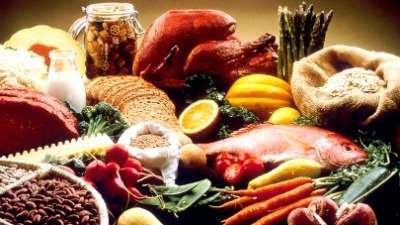 In this, the fourth instalment in our series on food security, I will share some further very practical helps. This time our focus is on preserving the crops that you may grow for your storehouse.
In this, the fourth instalment in our series on food security, I will share some further very practical helps. This time our focus is on preserving the crops that you may grow for your storehouse.
A number of basic practical recommendations are likely to prove helpful:
-
Keep a preserving diary.
-
Draw up a seasonal garden plan – take stock of what you have and what you need to use fresh and/or preserve.
-
Record the date of preserve; the quantity; what worked well; what failed.
-
E.g. would you grow or make this again?
-
What mistakes did you make?
-
Why was that?
-
In your storehouse keep a variety of items: frozen products; dehydrated & smoked foods; pickles, chutneys & jams; canned vegetables, fruits, soups & whole meals, etc.
-
Begin to plan next year’s garden crops.
-
Avoid wastage.
A Root Store - What is it?
A root store, or cellar, is a construction designed, in the absence of electricity, fridges or freezers, to keep core British crops such as potatoes, carrots, beets, maize and onions cool to preserve them through the winter. It is also possible to store apples and pears overwinter in the same way.
Because the concept of a root store predates modern preserving methods, they were commonly constructed underground – to make use of the ground itself to aid cooling.
My own root store was a large insulated wooden box (see photograph below) which was handmade by my father. Its dimensions were 6’ long x 3.6’ high x 2.6’’ deep. It was lined inside with rockwool but any form of food-safe insulation would work well.
While there are many advantages to keeping a root store, they also have their limitations:
Advantages:
-
It’s convenient.
-
Food is considered fresh.
-
It’s a ‘green’ form of storage.
-
It is healthier to use whole foods than it is to use foods processed by freezing or canning.
-
It saves money: e.g., petrol, electricity in having to go to supermarkets, etc.
-
It allows you to store more of your harvest.
-
It’s not dependent on external sources.
-
Food stored in root cellar requires little technology.
|
Disadvantages:
-
The longer vegetables are stored, the lower the nutritional value.
-
Damaged or rotten vegetables and fruit can spoil the whole pile. Check regularly.
-
Fluctuations in temperature can cause items to decompose faster.
-
Different foods require different temperatures and humidity levels.
-
Keep potatoes in paper bags or hessian sacks.
-
Keep apples away from potatoes.
-
Hang garlic & onions in mesh bags.
-
Pests: ventilate with wire mesh; be rodent aware.
-
Eat by the following spring.
|
My root store chest
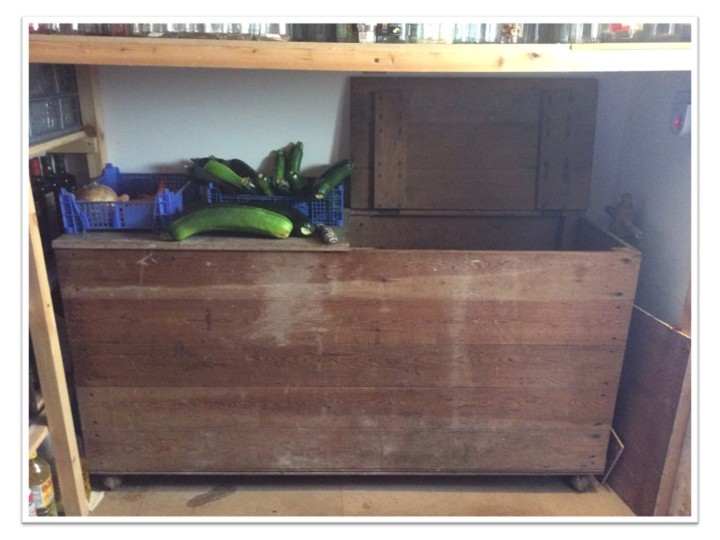 My fresh garden produce frozen
My fresh garden produce frozen
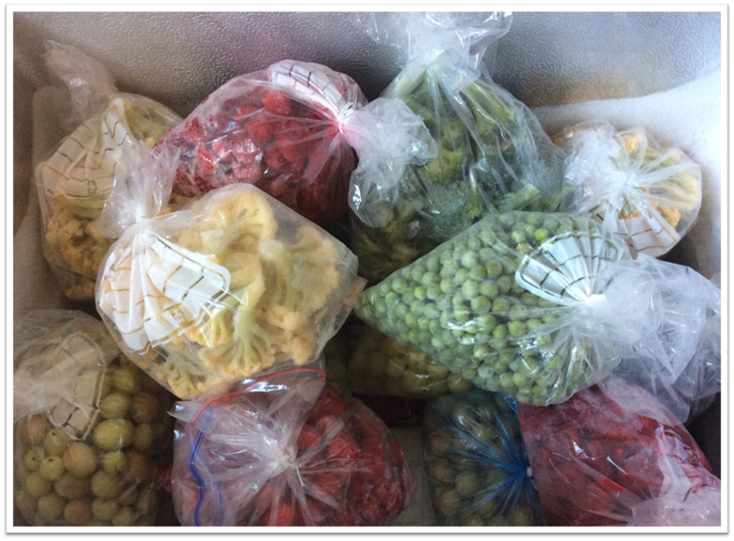 Freezing
Whilst we have electricity, the freezer can be an important extension to any storehouse. It kills any bacteria, so fresh garden produce or surplus food portions can be easily and cheaply preserved.
As with any store, it is wise to keep an account of when products were frozen in order to ensure they’re eaten before they suffer from ‘freezer burn’ or simply deteriorate beyond being edible.
Freezing
Whilst we have electricity, the freezer can be an important extension to any storehouse. It kills any bacteria, so fresh garden produce or surplus food portions can be easily and cheaply preserved.
As with any store, it is wise to keep an account of when products were frozen in order to ensure they’re eaten before they suffer from ‘freezer burn’ or simply deteriorate beyond being edible.
Advantages:
-
It’s convenient.
-
Not time consuming.
-
Keep food for up to 12 months.
-
Can bulk buy items and save money.
-
Blanching prior to freezing stops enzyme activity and helps maintain nutritional value in the foods.
-
Vitamins A, E, carotenoids, fibre, minerals and proteins retain their values.
-
Double recipes to create convenience foods.
-
Freezer containers are cheaper than canning jars and lids.
|
Disadvantages:
-
Vitamins B and C are lost in the freezing process.
-
Freezer burn can affect texture and flavour.
-
Many vegetables and most fruits lose their crispness.
-
Items can change texture.
-
Items can pick up the smells of other items around it.
-
Freezers are expensive to buy.
-
Ongoing expense in running it.
-
Reliant on electricity.
-
Mechanical malfunctions.
-
Freezer storage recommended for a year or less.
|
Dehydrating
Dehydrating food is an ancient way of preserving fresh food whilst retaining its original intense flavours. It reduces food moisture to between 5-20% ie. To a state where any bacteria can’t survive.
There are a number of different processes for dehydrating e.g.: air drying, sun drying, electric drying or oven drying being the most useful for our climate. Many air-fryers also have a dehydrate function.
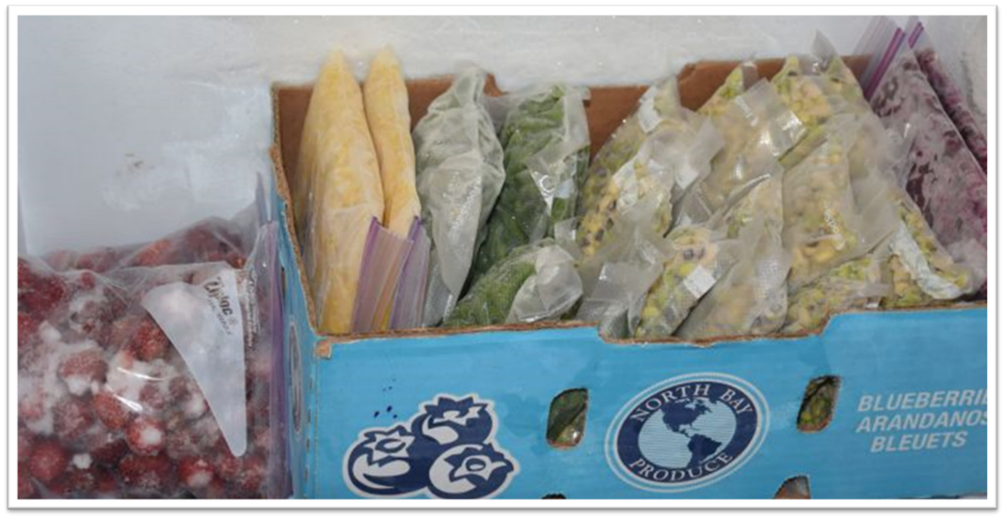
Advantages:
-
Keeps indefinitely if stored correctly.
-
Extremely lightweight and can be moved easily.
-
Can be a great way to store excess.
-
Dried fruits are a sweet alternative to sugary treats.
-
Dried herbs and vegetables add flavour.
|
Disadvantages:
-
Does not taste the same as fresh or frozen food.
-
Any retained moisture in the drying process can cause mould or winey deterioration.
-
Overly dried fruits, vegetables and meats can be exceptionally hard and may not soften.
-
Texture is often noticeably changed e.g. Jerky, fruit leathers.
-
Increased fluid intake is necessary if consuming large quantities of dried foods.
|
Smoking
Smoking is the process for cooking, flavouring, browning or preserving food, mainly meat or fish, by exposing it to a prolonged period of burning or smoking over some form of wood. The flavour of different types of wood used is said to enhance the flavours of the product.
Advantages:
-
Kills certain bacteria and slows down the growth of others.
-
Prevents fats from becoming rancid.
-
Prevents mould from forming on fermented sausages.
-
Extends shelf life of the product.
-
The smell and flavour of smoked meat is appetising.
-
Changes through the process makes meats shine and appear redder and more appealing.
|
Disadvantages:
-
The process requires constant attention.
-
Equipment can be costly.
-
Difficult to keep the food moist.
-
Difficult not to contaminate meat flavour.
-
Problems can develop if the fire is too hot (cooking the meat before it is properly smoked).
-
Problems can develop if there is not enough smoke or heat (the meat goes bad before it can be smoked).
-
Smoked foods may contain carcinogens.
|
Pickling
Pickling is an ancient way of preserving, extending the shelf-life or flavouring food using either brine solutions or vinegar.
Advantages:
-
Prevents foods from spoiling.
-
Adds unique flavours to meals.
-
Fermented foods can be good sources of nutrients, including vitamins, amino acids and healthy bacteria.
-
Pickle juice can be used to decrease muscle cramps caused by heat.
-
Allows some foods (e.g. cucumbers, courgettes and squash) to be preserved beyond fresh season.
|
Disadvantages:
-
Pickling alters the taste of foods permanently.
-
Pickled food is not a good substitute for a fresh ingredient in a recipe.
-
Pickles are high-sodium products which can cause higher blood pressure.
-
Requires the expense of jars, lids, and other canning equipment. However, it does not require the use of a pressure canner.
|
Jams and Chutneys
The terms jams and chutneys are actually very broad! There are jams, jellies, compotes, preserves and marmalades as well as chutneys that are thick, like jams, or simply sauces!
Jam, jellies etc. are all made by cooking fruit down with sugar, pectin, lemon juice and water until it softens and thickens.
Chutney can also be made from fruits but usually with added vegetables and sugar. Chutney usually has the addition of spice in some form or another.
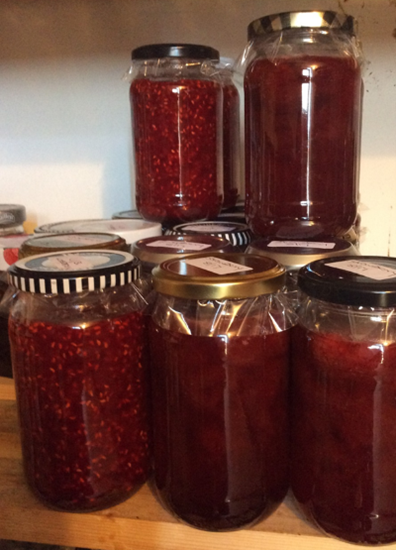
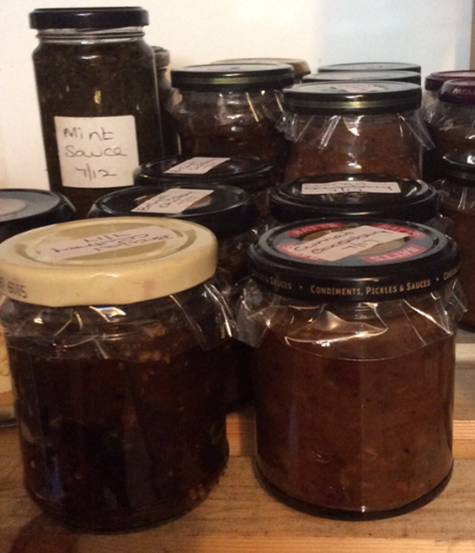
Advantages:
-
Prevents foods from spoiling.
-
Provides a ‘taste of summer’ and bit of luxury to a bland diet.
-
Allows some foods (e.g. soft fruits) to be preserved beyond normal ‘shelf life’.
|
Disadvantages:
-
Jams & chutneys have a high sugar content which is not good for general health.
-
Sugar is a luxury. It can be expensive and may, at some point for those outside the world’s trading system, become scarce.
-
If not stored correctly, contents will go mouldy or winey.
-
Does not keep well beyond one year.
-
Requires the expense of jars, lids and other canning equipment. However, it does not require the use of a pressure canner.
|
In the next instalment of this series we will look at what is perhaps the most important preserving method available to the domestic household – canning. We will also consider the most basic food of all, bread and its derivative, grain.
Sarah Winbow, 26/06/2025